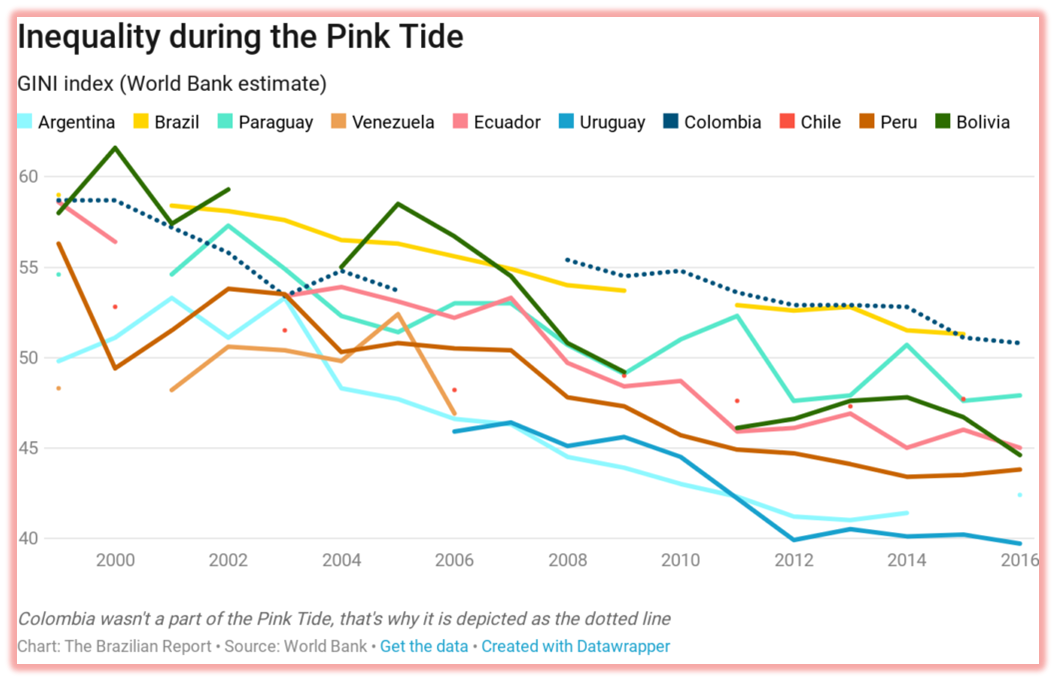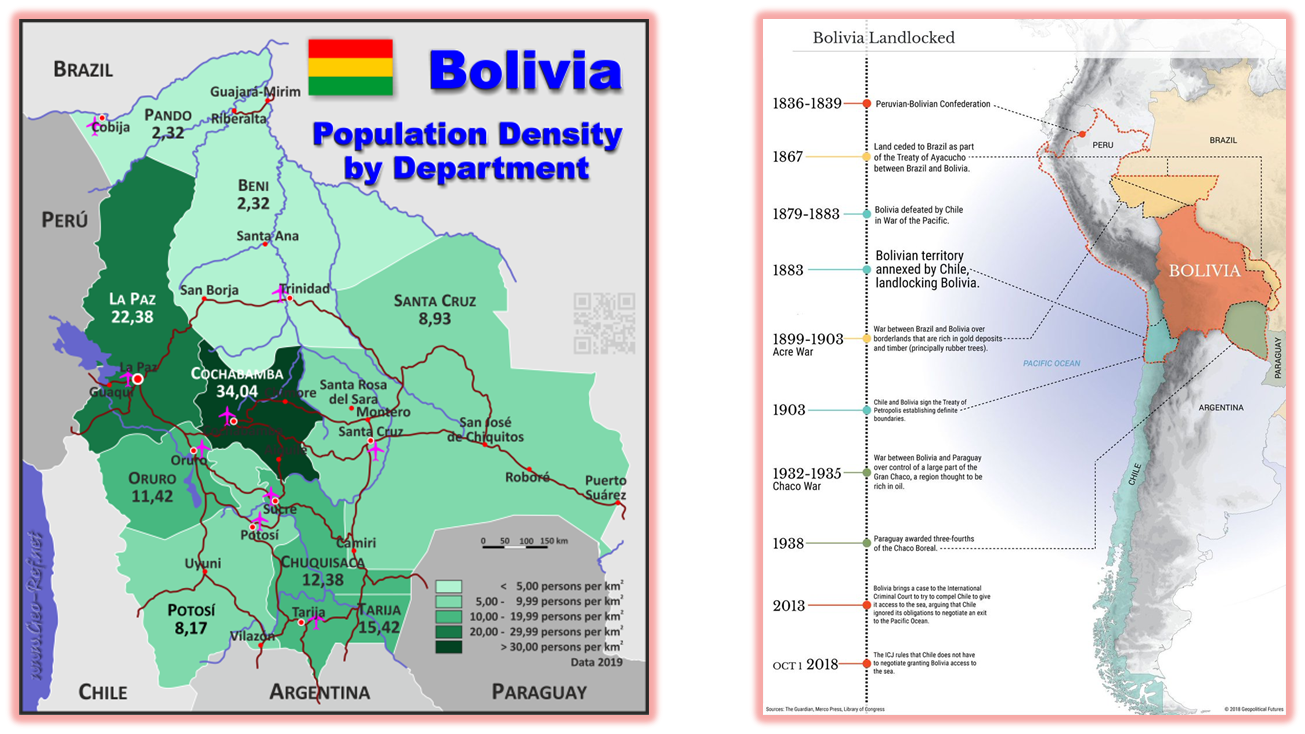Excellent study material for all civil services aspirants - begin learning - Kar ke dikhayenge!
CONCEPT – BOLIVIA'S SOCIALISM STORY
Read more on - Polity | Economy | Schemes | S&T | Environment
- Events in November 2019: On November 10, Bolivia’s President Evo Morales Ayma, who had been reelected on October 23, resigned from office. He did so because rumours suggested that the police would open a corridor for rightwing militias to enter the presidential palace and kill Mr. Morales. He called for fresh elections, but the political parties of the oligarchy, led by Carlos Mesa, rejected the offer. The military initially was neutral, but when General Williams Kaliman demanded that Mr. Morales step down, he had to step down and then leave Bolivia (for Mexico).
- The pink tide: Morales stormed to power when the ‘pink tide’ had been established from Venezuela to Argentina. That was when commodity prices were high. Later, they fell, hitting nations like Venezuela hard. Some left-leaning govts. lost power too. Morales remained popular and won election after election. All through, he faced opposition from Bolivia’s oligarchy and from the U.S., which had long wanted him removed from office! US threats began in 2006 when it warned Morales that if he tried to nationalise any of the key sectors, or if he rolled back the anticoca policies, he would be penalised.
- The Socialist Agenda: Evo Morales came to power in 2006 as the first indigenous president of Bolivia. He represented 2/3rd of Bolivian population, always subjugated by, and under the thumb of, descendants of Spanish invaders. Morales won a landslide in 2005, and his Movement for Socialism (MAS) started working for the dignity for the indigenous communities. At the United Nations in 2019, Mr. Morales said Bolivia had cut poverty drastically, increased its life expectancy rate, became 100% literate, developed a universal healthcare system, and ensured that over a million women received land tenure. Its Parliament is dominated by women. “We nationalised our natural resources and our strategic companies,” he had said.
- Respect for indigenous communities: A new Constitution was formed in 2009, and the flag of the indigenous people (Wiphala) was widely adopted all over.
- Socialist agenda: Morales' socialist agenda was formed by a range of social and political movements, including organisations of the indigenous communities and trade unions. His predecessor, Mr. Carlos Mesa, was hit hard by protests against gas and water privatisation and against the destruction of coca crop. Mr. Morales was a leader of the coca growers.
- Armed forces: They are under US's influence. All these years, the mass popularity of Morales forced them to remain quiet. Morales’s socialist agenda improved the everyday lives of the people, even as commodity prices declined. The US ‘coup’ had to be delayed given his appeal.
- Morales' mistakes: The 2019 elections were fraught with tension. Mr. Morales had sought a fourth term, for which he got judicial sanction. He beat Mesa who refused to accept the result. The Organization of American States (OAS), under US influence, gave adverse verdict on election honesty. Key U.S. officials and Bolivian oligarchy tried nullifying everything. Right wing called its armed supporters on the streets, and police mutinied.
- Reaction: The armed groups are arresting MAS members, and removing the Wiphala flag. It is again a direct attack on the indigenous communities. Morales has promised to return, this time with greater force.
- Lithium reserves: Bolivia's key reserves are in lithium, which is essential for the electric car. Bolivia claims to have 70 percent of the world's lithium reserves, mostly in the Salar de Uyuni salt flats. The complexity of the mining and processing has meant that Bolivia has not been able to develop the lithium industry on its own. Morales had canceled an agreement with a German company for developing lithium deposits in the Latin American country for batteries like those in electric cars. The Morales move on Nov. 4 to cancel the December 2018 agreement with Germany's ACI Systems Alemania (ACISA) came after weeks of protests from residents of the Potosí area. The region has 50% to 70% of the world's lithium reserves in the Salar de Uyuni salt flats.
- June 2019 announcement: Morales government announced at the time it was "determined to industrialize Bolivia and has invested huge amounts to ensure that lithium is processed within the country to export it only in value-added form, such as in batteries." It is suspected that the coup was engineered also due to this reason.
* Content sourced from free internet sources (publications, PIB site, international sites, etc.). Take your own subscriptions. Copyrights acknowledged.










